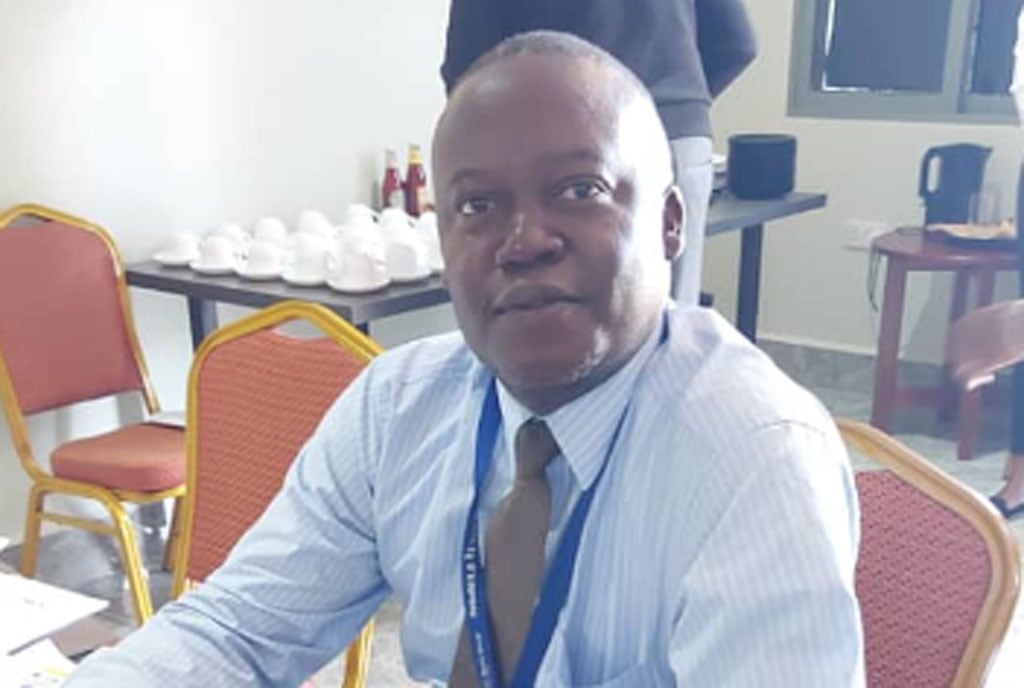Rural women benefit from Shs2b project

Mr Peter Dhamuzungu, the commissioner of crop production in the Ministry of Agriculture, Animal Industry and Fisheries (L) tours stalls during the International Day of Rural Women in Jinja City on Thursday. PHOTO | PHILIP WAFULA
What you need to know:
- Ms Susan Gamwino, a senior programme officer at UCOBAC, says the project enhances the voice of rural and grassroot women to be able to participate in agricultural value chains.
At least 600 grassroot rural women from the Districts of Jinja, Bugiri, Kaliro and Kabong are participating in a advocacy project aimed at promoting inclusive and sustainable agricultural trade and value chains.
A “FAIR for ALL” project is being implemented by Uganda Community Based Association for Women and Children’s welfare (UCOBAC) in partnership with Slum Women Initiative for Development (SWID) and Action for Women and Awakening in Rural Environment (AWARE Uganda) with finacial support from Huairou Commission and OXFAM Novib of over $540,000 (about Shs1.95b).
The project aims at strengthening grassroots women’s voices, participation and benefiting from agri-business value chains.
Ms Susan Gamwino, a senior programme officer at UCOBAC, says "The fair for All' project aims at strengthening capacity of rural grassroots women smallholder farmers to effectively engage and benefit in all stages of agri business value chains as well as collectively advocate for equal participation in agricultural trade and value chains.
She added: “The project is for a period of five years and this is our third year of rural grassroots women organising, movement building, capacity building and evidence based advocacy and we hope that this process will empower and transform the lives of the rural women and they will not remain the same.”
Ms Gamwino was speaking during the climax of events to celebrate the International Day of Rural Women that was celebrated in Jinja City under the theme: “Financing for Rural Women Empowerment”.
Ms. Gamwino said the day is when we have a renewed reflection and appreciation of the role and contribution of rural grassroots women in our communities, especially in the care economy and in promoting food security and rural development.
According to Ms Gamwino, the project initiatives include; capacity strengthening of rural grassroots women small holder farmers in leadership, advocacy and lobbying, womens land rights, resilient agri- business, value addition, financial literacy as well as grassroot women-led movement building.
Others are; gender audits/action research and evidence-based advocacy with key stakeholders to influence policies and practices related to women and agricultural trade, and value chains.
Data from the Uganda Bureau of Statistics (2022) indicates that 87 percent of women are engaged in agriculture as their main economic activity; however, they face challenges that limit their effective participation and benefit from agriculture.
Ms Gamwino says rural women face exclusion from the digital economy, meaning they don’t have the technological devices which limits their acccess to critical agri business information. They also lack access to markets to sell their goods.
“Women also have a challenge of restrictive social and gender norms, domestic violence, burden of care work, expensive and counterfeit agricultural goods that are on the market, climate change with prolonged drought that makes it hard for the women to reap much from agriculture,” said.
She further called on the government to do more to support women to overcome these challanges in agriculture through extension of empowerment programmes, financial and digital inclusion for women and capacity building intiatives, especially in agribusiness and extension services.
Ms Josephine Adongo, a grassroots rural woman and farmer from Iwemba Village in Bugiri District, says women lack land or land rights because land is owned by men as per our patriachal culture.
Subsequently, they are constrained to grow crops that take long in preference for those that take between three and four months due to lack of security of tenure.
Mr Peter Dhamuzungu, the commissioner crop production in the ministry of agriculture, animal industry and fisheries, says some of the opportunities being offered by the government to rural women include tractors which come with a planter and plough.
He, therefore, encourages the rural women to tap into such government opportunities by requesting for the tractors through the Office of the Permanent Secretary and after good scrutiny they will get.
“As government, we continue to extend extension and advisory services, and through the District Local Governments, we have recruited a number of staff to ensure that they provide extension services to these women,” Mr Dhamuzungu said.
As for allegations of counterfeit products on the market, Mr Dhamuzungu says the ministry has a department of inspection, certification and national crop satisfaction services, which are there to ensure that they inspect, certify and oversee all products.
To fight climate change, he says the government has rolled out climate smart agriculture, which looks at basic principles that can be addressed, including ensuring that such farmers are able to produce using the required principles.
According to Mr Dhamuzungu, the project will see that farmers do not over till their land or there is minimum tillage, but that they are also accessing quality agricultural inputs.





